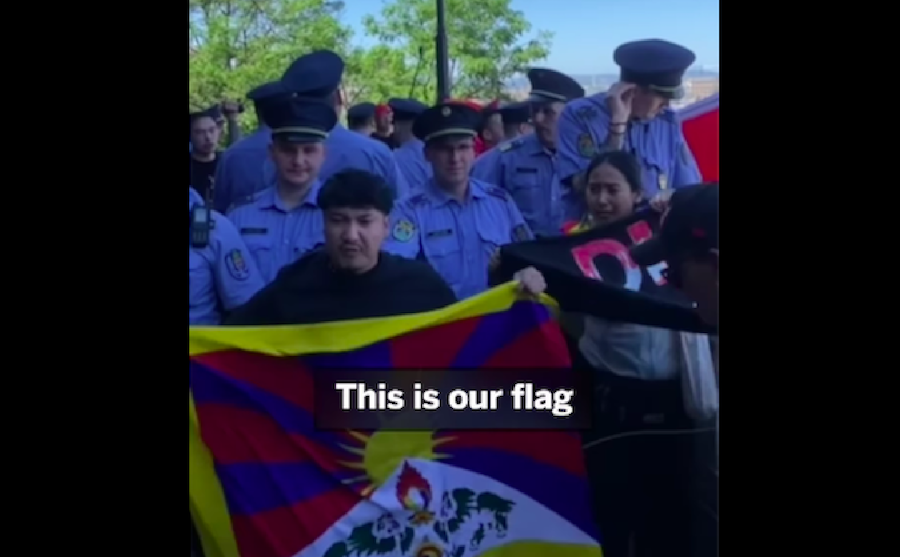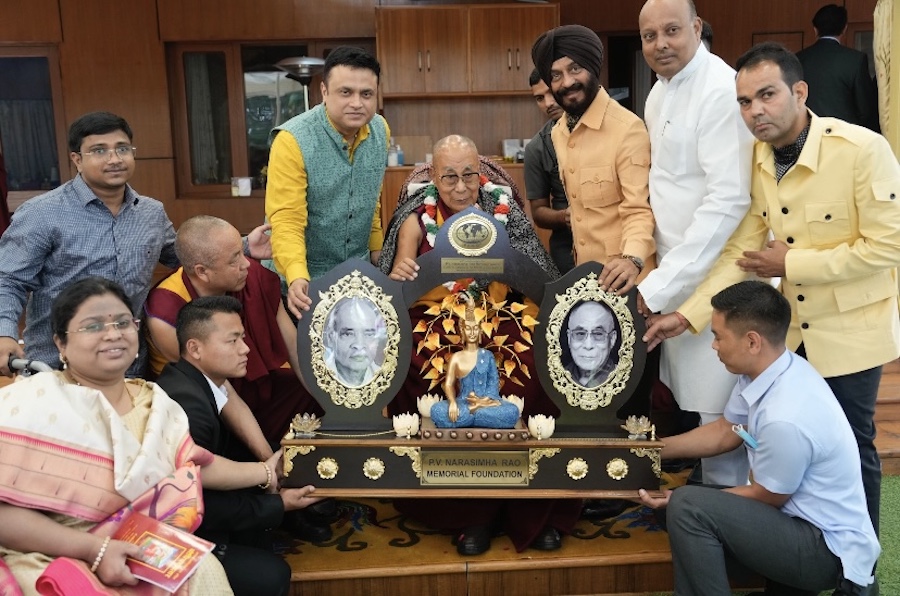By Tashi Phuntsok
This Kalon Tripa election has raised our democratic process to the different level. The cyber campaigns and live debates have generated unprecedented responses from the Tibetan exiled population around the globe. Supporters of the candidates appear to be even more charged than the candidates themselves, attacking and counter-attacking opposition candidates and then accusing each other of mudslinging.
In the midst of this, we seem to forget what we want from our candidate if he becomes the next Kalon Tripa. We are not just electing a Prime Minister of the Tibetan Government in Exile; we are electing a leader who should be able to lead the Tibetan masses in the process of the Tibetan freedom movement.
I was unable to attend the debate hosted in New York City, but did manage to watch it online. There were few questions I intended to ask the candidates if I had been able to attend. Then I realized considering the time limit I might not have been able to ask more than one question. During the debate all three candidates pledged to uphold the His Holiness’ Middle Way Policy without providing any explanation what they would do to help His Holiness to win ground for the Middle Way.
In spite of the spectacular campaign display, the candidate’s rhetoric sounded familiar, with no new ideas or fervor to answer some of the fundamental questions that we face at this point of our freedom struggle. Our struggle is not just a struggle for religious and political freedom. Our struggle is one for the survival of the Tibetan race. China’s shrewd ethnic cleansing policy of promoting a massive Han population transfer into Tibet in their attempt to turn the Tibetans into an insignificant minority in their own country and eliminating the original Tibetan names of places in Tibet is more dangerous than denying political and religious freedom. If the Han migration to Tibet continues at the present rate, it won’t be too long before our struggle from exile will become meaningless. The closest comparison in history that I can think of is the struggle of the indigenous people of the two American continents. The world knows what happened to them. None of the candidates, however, have mentioned this issue as an agenda in their manifestoes. I wanted to ask the candidates how we can stop or at least slow down this systematic, massive population transport in Tibet.
It’s evident that our campaign against China during the past five decades has not been effective; the Middle-Way policy has failed to counter China’s relentless repression inside Tibet, nine years of dialogue with China has brought us nowhere, and despite all our efforts we have been unable to muster a single country in the world to recognize Tibet as an occupied country or the Tibetan Government in Exile as a legitimate government representing the Tibetan people. We held meetings and passed resolutions, but failed to come up with effective action plans involving the Tibetan masses either inside Tibet or in exile to resist the Chinese occupation. Successful freedom movements in history were those that involved the masses. Gandhiji could not have overthrown the British and Dr. Martin Luther King could not have succeeded in the Civil Rights Movement in America without mobilizing the masses behind them.
In my humble opinion, the Tibetan Government in Exile has failed to engage the Tibetan masses in the freedom struggle process, but instead often becomes a stumbling block to the Tibetan Youth Congress’ effort to turn the Tibetan freedom movement into a mass movement. Our kalons act like leaders of a free nation, giving speeches and sending deputations with little or no direct interaction with the Tibetan masses. When was the last time any kalon participated with the Tibetan people in Tibetan Uprising demonstrations? Have you ever heard of any one kalon who was incarcerated in an Indian jail for participating in the demonstration against China? Nelson Mandela reminded us in his autobiography that the freedom struggle was not merely a question of making speeches, holding meetings, passing resolutions, and sending deputations, but of meticulous organization, militant mass action, and above all a willingness to suffer and sacrifice. I wanted to ask the candidates if they are willing to lead us in the peaceful demonstration on the 10 March uprising day next year.
Our non-violent method in some ways varies from what Gandhiji had preached and practiced, even though we claim we follow his path. The incumbent Kalon Tripa, Samdong Rinpoche, did not approve the hunger strikes unto death organized by the Tibetan Youth Congress, because it was equivalent of taking your own lives and that was against the Buddhist tenet. Gandhiji undertook hunger strikes unto death for the freedom of India; he believed the hunger strike was an effective weapon for non-violent resistance against tyranny. I wanted to ask the candidates if they are willing to use hunger strikes as a political tool to protest against China’s repression in Tibet or at least endorse the hunger strikes organized by the Tibetan masses.
Maulana Abul Kalam Azad, the president of the Indian National Congress, once declared that the non-violent method adopted by the Indian National Congress to fight against the British was a policy, not a creed. He said, “Our decision to fight non-violently was compelled by circumstances. It was not a matter of creed for me and for many other Indians.” He further asserted that the Indian National Congress was not a pacifist organization but an instrument for achieving India’s freedom. I wanted to ask the candidates if they consider the non-violent approach we have adopted to fight against China a policy, or a creed. Policy can be changed if circumstances demand, but not a creed.
The author is Dean of School at the Woodhall School, a small independent school in Bethlehem, CT. He can be contacted at pytash@sbcglobal.net
[OPINION-DISCLAIMER]









